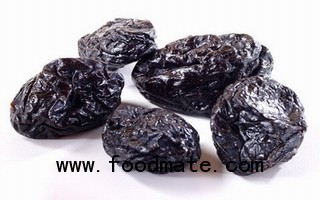
Last year, fresh plum exports amounted to US$ 130 million, dried plums to US$ 112 million and the juice to US$ 12 million. These figures indicate that the gap between both formats is closing and that the growth rate for dried plums is much higher. In fact, the National Customs Service established that, between January and June this year, dried plum exports increased their volumes by around 30% compared to the same period last year, surpassing 27,000 tonnes and increasing their value by 22%, amounting to almost US$ 49 million. The main markets for this Chilean product are Mexico (15%), Russia (14%), Germany (10%) and Poland (8%).
From this we can establish that dried plums have achieved a marketing milestone in 2012. Export prospects by the end of the season come close to 78,000 tonnes, turning Chile into the world's main exporter.
For Andrés Rodríguez, CEO of Chile Prunes, the possibilities for growth are in exporting, given the situation of markets such as Brazil, Poland and Russia, which have registered the greatest sales increases. "Our plums are appealing for the international market due to the geographic and climatic conditions and to the manner of production and processing, resulting in a great quality product achieving the highest standards," he explains.
Domestic market weakness
Currently 98% of the national production is exported through Chile Prunes. The problem is that the remaining 2% is insufficient for the product to be popular and demanded in our country. There lies a great opportunity for the sector: advertising the product's qualities, looking for marketing opportunities and, consequently, promoting domestic demand.
The task is not easy. Distribution in the country is expensive and could result in non-competitive prices; however, Chile Prunes has taken the first step to approach local markets with its participation in the program "Elige Vivir Sano" (Choose a healthy lifestyle), which sponsors the distribution of dried plums in schools and other public places.
Medium term prospects indicate that worldwide production will surpass consumption, so it is essential for the industry to work on increasing domestic demand and look for new marketing opportunities through diversification and the incorporation of this product in processed food products and snacks.
With the goal of improving performance without compromising the quality for which Chilean dried plums are recognised, this fruit's processing industry must mechanise processes, especially in the harvest, as labour nowadays is scarce and expensive.
Another factor is the popularity of the product worldwide. While up until now Chilean dried plums have been widely accepted, it is always worth developing and intensifying marketing resources to strengthen and spread the recently created brand "Prunes from Chile."
All of this is essential considering that demand in China is on the rise, leading to imports reaching around 130,000 tonnes in the future, which of course entails a great growth potential for Chilean exports.
Sweden's case
Dried plums are a truly valued product in this country. A ProChile report estimated that consumption per person in the Swedish market is constantly growing, mainly because of its natural virtues. In Sweden, both the demand and value added of healthy and organic products have increased. Sales of these products grew by 11% in 2011.
Since 2009, Chile is Sweden's main provider, covering between 38 and 44% of the market. This means that Chilean dried plums are already an established product in Sweden, so product quality and sanitary conditions must be kept at a good standard. For this reason, the use of pesticides and other chemicals during processing must be carefully regulated, as a loss in natural and/or organic qualities could have an impact on the degree of acceptance the product currently enjoys.





